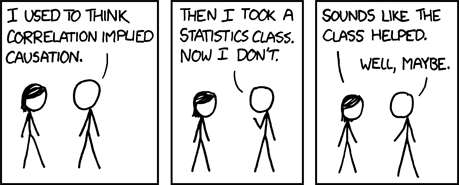Rick Falkvinge's Blog, page 33
November 28, 2012
Free Market Failure: Telcos Charge More For Sending A Text Next Door Than Cost Of Sending Data From Mars

Infrastructure: The telco industry charges more, kilobyte by kilobyte, for sending a text message from your phone to next door than what it costs to send the same message from Mars to Earth. This is the apex in this series of the dysfunctional telecom market, giving a background to why the telecom industry wants control of the Internet so badly, and is using every conceivable resource to stall, prevent, and delay its resulting economic development.
For the third installment in this series, we focus on text messaging. FoI reader Chris Monteiro suggested that we should describe how it is more expensive to send SMS text messages from your phone, kilobyte by kilobyte, than it is to send the same data from Mars to Earth. That couldn’t possibly be right, we thought, but nobody seemed to have done the math before.
So let’s do the math.
The cost of the Mars Global Surveyor probe was roughly 200 million USD for the satellite and launch, plus 20 million per year. So, 400 million USD. It operated for nine years, transmitting at an assumed average of 42,667 bps. Assuming it transmitted 24/7, that comes down to 42,667 × 3,600 × 24 × 365 × 9 / 8 / 1,024 / 1,024 / 1,024 = 1,410 gigabytes of data at a cost of 400 million dollars, or roughly 284,000 US dollars per gigabyte. That number includes the cost of the actual Mars probe and its launch, as well as the cost of the NASA crew handling its journey to Mars for almost a year before it started transmitting.
The charge for sending an SMS text message next door is about 5 USD cents (let’s use the same currency for simpliticy’s sake). Each text message is 140 bytes. This means that there are 1,024 × 1,024 × 1,024 / 140 = 7.67 million text messages per gigabyte. Multiplying this number by 0.05 gives us that the traffic charge when sending an SMS text message next door is 383,000 US dollars per gigabyte.
(UPDATE: As pointed out in the comments, an SMS text message is 160 characters but 140 bytes, so the cost per gigabyte comes even higher – it was originally and erroneously stated as 336,000 USD per gigabyte based on a 160-byte count. Downstream numbers adjusted accordingly.)
So the situation really is as insane in terms of telco industry overcharging as was suggested: the telcos charge more, kilobyte by kilobyte, to send a text message next door, than it costs to send data from Mars – even when including the cost of the actual Mars probe, its launch, and NASA personnel for ten years!
This is an abysmal failure of free market forces to converge the end price with the cost of production. (To add insult to injury, the practical cost of production is zero in this case, as SMS text messages are sent on unused slots in the wireless control channel.) Just for the sake of argument, let’s calculate what an SMS text message should cost if priced at net connectivity traffic rates.
We observed yesterday that wireline traffic costs at most 0.25 cents per gigabyte to the end-user. Fitting 7.67 million text messages into a quarter of a cent comes down to a production cost of at most 33 nanocents per text message, compared to the five typical cents charged. (Over-the-air traffic costs slightly more, but again, this travels in the control channel.)
Concluding, how do these numbers translate into actual telco profit markup on text service, to evaluate market efficiency? We recall that the profit markup on data roaming is an unbelievable 1,400,000%, and that a healthy, functioning market can sustain profit markups of 5% to 10% in the face of active competition. Comparing 33 nanocents to 5 cents gives us a mind-boggling telco industry profit markup exceeding 15,000,000,000% – fifteen billion per cent – on sending text messages next door. When SMS text messages are sent next state, which are charged at about 50 cents, the profit markup exceeds one hundred billion per cent.
This is not just an abysmal market failure, it is more than that. It is a personal insult to us who have publicly defended the belief of the workings of a free market, this being incontrovertible hard data that the telco industry needs to be politically restrained with a complete absence of humor.
For there are already next-generation companies who will have the side effect of killing the entire telco industry by providing the same services free of charge. From the Estonian Skype (voice services), via the American Google Fiber (wireline net connectivity), to the Spanish Fon (wireless connectivity), these companies are proven sustainable and can provide the entire telco offering free of charge as a baseline service in a completely viable next-generation business model.
No wonder the telco industry is trying its damndest to prevent this generational shift from happening. It’s going to wipe them out. There’s no room for a billion-percent profit markup if your competitor provides a better service for free, and especially so if that competitor will enable a whole suite of new products, services, and jobs that go way beyond the thinking of your own industry.
So it is bad policymaking – no, terrible policymaking – to allow the incumbent telco industries to prevent this economic growth (and their own replacement) by giving them any kind of control of the Internet, like with the upcoming coup attempt at the ITU’s meeting in Dubai, or trusting them politically with Internet rollout.
(End note: With a free market, we are referring to a non-discriminatory market that is optimized for low barriers to entry, and where end prices converge towards cost because of functioning competition. We are not referring to an unregulated market where no rules are enforced by governments, for the simple reason that no such market exists on planet Earth. The comments derailed somewhat around this subject on the last article. As these articles cover important subjects for future policymaking, and they are read in Brussels, please stay on the topic of information policy.)

November 27, 2012
Free Market Failure: Telco Profit Margin On Data Roaming Exceeds One Million Per Cent

Infrastructure: The profit margin for the telecom industry on mobile data roaming is in excess of one million per cent. On healthy and functioning markets, the profit margins typically range between five and ten percent. This is an in-your-face example of free market failure.
Following yesterday’s article about telco voice services being overpriced by five magnitudes – that is, a factor of 100,000 – according to a report published by the OECD, it is appropriate that we look at other services provided by that industry. Today, we look at data roaming.
The cost of providing one gigabyte of traffic over-the-air is just under one euro, according to several independent sources. However, the telco industry charges about 14 euros per megabyte when roaming in the state next door. That’s a 1,400,000% profit margin – and a complete failure of the free market to make the end price converge with the production costs, due to the oligopolistic nature of the industry.

“Abroad, normal prices do not apply. These prices are the standard abroad… All data traffic: SEK 120 (~€14) per megabyte.”
On a functioning market, such as grocery retail, profit margins typically stabilize in the 5-10% range with competition. These numbers are an obvious sign that the telco market is severely dysfunctional.
But it’s worse from a public-interest standpoint than just being any random nonfunctioning market. The lack of roaming data inhibits Europe’s entrepreneurship and free movement of jobs, people, and business. If you can’t maintain connectivity, you can’t maintain productivity. Again, we see how the telco industry is actively inhibiting the overall economic growth of Europe’s industries in order to protect itself and its own interests.
That is not in the public interest.
(The obvious retort to these numbers would be that the one-euro-per-gigabyte number only would include the actual transmission, once the investments in radio towers and other infrastructure are made. That would be a false claim; those investments are included in the one-euro-per-gig number over-the-air. To compare, the cost of one gigabyte of traffic over the wire is much less than a cent – in most places in Europe, you can get two terabytes of traffic and a server for five euros, coming to a per-gigabyte cost of 0.25 cents over-the-wire – including a rented server with that price, so the traffic itself is actually much, much cheaper.)
The European Union has regulated data roaming within its member states to have a maximum price of 700 euros per gigabyte today, coming down to 200 euros per gig in mid-2014. Assuming the price of traffic to keep falling proportionately, the European Union regulation still allows for a 70,000% profit margin – which is exactly the level the wireless operators are now pricing at within the union, all while keeping their million-plus-percent profit margin to neighboring states like Switzerland and Norway.
This is a ridiculously nonfunctioning market that needs much tougher regulation, and/or competitive incentives for new and disruptive actors outside the telco industry. A suggested maximum profit margin for regulations would be 1,000% – if you can’t maintain a business at that profit level, you shouldn’t get to run a business. That would mean a price cap regulation of 10 euros per gigabyte today (instead of the current 700). But we’d far prefer a rollout of municipal free wi-fi to encourage European growth and innovation; after all, we take streetlighting completely for granted today, which is much more expensive than the equivalent wi-fi coverage.
Tomorrow: profit margins on text messaging.

November 26, 2012
OECD: Telcos Overcharging By Five Orders Of Magnitude

Infopolicy: A little-noticed report by the OECD sheds light on why the telco industry so forcefully prevents more and better internet connectivity to Europe’s entrepreneurs and households: the telcos are currently overcharging by five orders of magnitude by forcing people to use the telco network rather than the Internet.
An OECD report, referenced by Glyn Moody, describes how vastly more efficient the bottom-up Internet is compared to the old telco industry’s top-down model, and notes that in 99.5% of connection agreements on the Internet, there’s not even any written agreement signed. (In the telco industry, by contrast, you can’t even become an individual subscriber without signing written agreements.) The report uses this observation as a base to state that the telco industry has no business meddling with the net in its upcoming ITU meeting, just like the European Parliament declared in a resolution recently.
But the report also highlighted something else: the Internet provides a large superset of the services of the telco industry, at a cost five order of magnitudes less for the same service. In other words, the telco industry is currently overcharging for voice service by five orders of magnitude – that is, overcharging by a factor of 100,000 compared to market price for net connectivity. (This ties well in with our previous observations that the future sales value of voice and storage is exactly zero, but the OECD is arguably a much heavier voice than this site.) The telcos’ ability to do this – to prevent the net’s utility, the public interest, and economic growth – is entirely due to a gatekeeper position that comes from having strategically bought all the small ISPs in the infancy of the net’s commoditization. It is now completely against the telco industry’s interest to roll out internet connectivity at the pace of the public interest, so it doesn’t happen.
This gatekeeper position is not just used to prevent rollout of more connectivity – it is also used to prevent the existing connectivity from threatening the current ridiculous levels of overcharging (think voice apps on mobile phones, and how many telcos actively sabotage traffic from Skype and Viber, for instance).
It can be hard to digest this enormous discrepancy – an overcharge of five orders of magnitude – so let’s break it down into a household example.
If your phone bill was 500 euros last year, it should have been half a cent, according to the OECD:
The performance of the Internet market model contrasts sharply with that of traditional regulated forms of voice traffic exchange. If the price of Internet transit were stated in the form of an equivalent voice minute rate, it would be about USD 0.0000008 per minute – five orders of magnitude lower than typical voice rates.
We’ve posted about this before, about the ridiculousness of paying by the minute for a 9.6-kilobit connection that can only be used for a voice application, when we have 100 general-purpose megabits at a flat rate in the wall.
So where does all the money from this overcharging go? The telcos aren’t posting record profits. Most of the money from this overcharging goes to maintaining the old obsolete telco network, which is now being used to prevent the rollout of the Internet, which is vastly more efficient and isn’t top-down-controlled. A further lot of it goes to maintaining staff who haven’t changed to a net-centric way of thinking – unofficial but reliable sources tell us that Deutsche Telekom alone has a surplus of at least 100,000 employees.
But it is not in the public interest to safeguard jobs that don’t provide value to society (if it were, we’d still be plowing the fields by hand and destroying Spinning Jennies). If we were able to align the telco industry with the public interest, the telco industry would be decimated in size, but next-generation entrepreneurs would be enabled, as would economic growth in new sectors. That’s in everybody’s interest.
Well, everybody’s interest except the telco industry’s. Until this situation changes – and it probably has to be changed politically, starting with net neutrality and continuing with net rollout by other actors than the telco industry – we will keep having this kind of overcharging, and the net’s rollout will remain prevented, stalled, and delayed.

November 22, 2012
The Unitary Patent And Why We Should Be Worried

Activism – Wendy Cockcroft: The Unitary Patent hasn’t been getting the attention it deserves. This is because we’re fighting off surveillance, attempts to take over the internet, and three treaties. Oh, and ACTA keeps threatening to come back from the dead in some way, shape or form. Meanwhile, time is running out for fending off the Unitary Patent, which, if we let it through, will bring software patents (and patent trolling) in by the back door.
What it is
The Unitary Patent as a concept is, on face value, a good idea. It provides the ability to enforce or challenge a patent in a single action everywhere in the European Union apart from Italy and Spain, a significant improvement on the situation at present. Currently, patents granted by the European Patent Office (EPO) in Munich must be challenged or defended in national courts. Not only is this expensive, but it can cause confusion when different courts reach different conclusions. – Science|Business
Let’s be honest, we do need to harmonize Europe’s patent laws. The patchwork of laws we have now are only applicable in their respective countries and enforcing them if they are infringed in another country is a nightmare. If you decide to be clever and register your patent in the European Patent Office (EPO) in Munich, Germany, you have to prosecute infringement in a national court. If the infringer is from a different country, the courts there might reach a different decision based on their national laws. It’s expensive, confusing, and needs to be resolved.
What’s the problem?
Another reason for promoting the Unitary Patent, according to EU Internal Market Commissioner Michel Barnier, is
Europe is falling behind the US and China in number of patents granted. “The new rules, once in place, will increase the potential for inventions and innovation within the European Single Market and reassert Europe’s competitiveness,” said Barnier, who believes the first unitary patent will be registered in 2014. – Science|Business
Does anyone apart from me see the problem with this nonsensical statement? He honestly believes that the skyhook potential for innvoation is in the patents that are registered, not the inventions themselves. This denies the potential of FOSS (free and open source) as if it didn’t exist. Perhaps they think it’s for amateurs and only professionals spend huge piles of money on paperwork that can easily be overturned by a troll with a big enough war chest; it’s actually cheaper to settle than to fight back.
With all the emphasis going on the patents instead of the products, I forsee even more outsourcing to keep production costs down because, when the patent is the product, who cares where the items it covers is made? We don’t need that nonsense here. Okay, it does actually happen but it’s not as widespread or destructive as it is in the United States. See my rather heated discussion with Policy Officer Stephanie Parry of the Copyright & IP Enforcement Directorate for details. Needless to say, since these people believe that patents themselves are important, there’s no reason to believe they won’t increase their scope until patents on software becomes more common, and trust me, they’re trying to make that happen.
There’s also the matter of the new patent court. It will be hosted in three locations — Munich, Paris and London — the three biggest sources of invention in the EU, each with its own deep-seated legal traditions and patent case-law. The trouble is, it won’t be accountable or under the aegis of the European Court of Justice, so any decisions made there will be final. The policy blog Unitary Patent has some background on the dangers presented by the Unitary Patent proposals as they are now:
On June 29th, 2012, the Heads of State and government of the European Union have proposed [sic] to remove articles 6 to 8 from the regulation on the unitary patent. But, such a removal has been found to not comply with EU law, since these articles were defining the very substance of the rights conferred by unitary patents, namely the definition of direct and indirect infringements, and exceptions to these rights. Without these articles, the regulation would have failed to define the minimal substantive rights attached to the unitary patent, in contradiction with the legal basis in EU treaties which authorizes the EU to create such an unitary patent. Therefore, the European Parliament has rightfully declared this removal unacceptable and has postponed its plenary vote on the project. The confessed purpose of this removal was to avoid any overview by the Court of Justice of the European Union (CJEU) on issues of substantive patent law.
Simplified version: all aspects of patent law pertaining to exceptions and to limiting the scope of the patents will be nullified. Basically, the patent holders’ rights trump all. Thankfully, the European Parliament is having none of it. Nonetheless, the secret meetings continue:
On Monday 12th of November, the Legal Affairs Committee (JURI) of the European Parliament held an extraordinary debate about the unitary patent, which was attended by Michel Barnier, the European Commissioner in charge of internal market. According to our sources, he has welcomed with the compromise found in the Council by the Cypriot Presidency. However, and as April highlighted it, this solution infringes the Union Law, and does not provide any democratic safeguard. These questions have been cleared out, even though the Commission is aware about the likely unlawfulness of this project. – Unitary Patent Blog
The upshot of this is that EU member states are scheduled to discuss draft legislation at a plenary meeting on 10th December.
What can we do?
The Internet Freedom Movement has a campaign on at the moment to get people to contact their MEPs and ask them to vote against the Unitary Patent proposals and reject the patent court. We don’t need another court and the proposals are against EU law and the interests of the European people. Get involved and help us fight it off. The all@europarl link Rick provided for the ACTA fight had to be disabled after it got spammed when we’d finished using it, so I’ve used the information he provided to get the list of the MEPs email addresses and made a list of them in the campaign post. As I’ve already sent my message, I can confirm that they all work and I’ve pruned the ones that don’t. Please help us fight this off. We don’t want patent wars in Europe and we don’t want excuses to tighten the already onerous copyright laws.

European Parliament Passes Resolution Against ITU Asserting Control Over Internet

Infopolicy: Today, the European Parliament passed a resolution that condemns the upcoming attempt from the International Telecommunications Union (ITU) to assert control over the Internet, and instructed its 27 Member States to act accordingly. This follows an attempt from the ITU to assert itself as the governing body and control the Internet. The Pirate Party was one of the parties drafting the resolution.
The resolution, which was passed with a large majority, included Members of European Parliament (MEPs) from all major party groups, and the Pirate Party’s Amelia Andersdotter had been playing a central role in its drafting, together with MEPs Marietje Schaake and Judith Sargentini from the Netherlands, Sabine Verheyen and Petra Kammerevert from Germany, Ivailo Kalfin from Bulgaria, and Catherine Trautmann from France.
In its upcoming meeting, the ITU is expected to try to decide for itself to have the regulatory power over the Internet. Many have been crying out against this shameless powergrab, now with the European Parliament – the elected legislators of the world’s largest economy – being the latest to join.
It is not surprising that the ITU would try to assert this power for itself, as it is the world’s industry body for telco operators, which stand to become obsolete as a result of the Internet. But if they can assert themselves as masters of the Internet, they get the desired ability to kill the potential of the net to replace them and their current cashcows. In other word, this is a textbook attempt at a regulatory capture by the ITU.
The Europarl resolution is very clear on the value of the Internet as a collaborative platform, and states that no single entity, like the ITU, should be able to exercise top-down control over the net:
3. [The European Parliament] believes that the ITU, or any other single, centralised international institution, is not the appropriate body to assert regulatory authority over either internet governance or internet traffic flows; [...]
5. [The European Parliament] believes that, as a consequence of some of the proposals presented, the ITU itself could become the ruling power over aspects of the internet, which could end the present bottom-up, multi-stakeholder model; expresses concern that, if adopted, these proposals may seriously affect the development of, and access to, online services for end users, as well as the digital economy as a whole; believes that internet governance and related regulatory issues should continue to be defined at a comprehensive and multi-stakeholder level; [...]
7. [The European Parliament] supports any proposals to maintain the current scope of the ITRs and the current mandate of the ITU; opposes any proposals that would extend the scope to areas such as the internet, including domain name space, IP address allocation, the routing of internet-based traffic and content-related issues;
8. [The European Parliament] calls on the Member States to prevent any changes to the International Telecommunication Regulations which would be harmful to the openness of the internet, net neutrality, the end-to-end principle, universal service obligations, and the participatory governance entrusted to multiple actors such as governments, supranational institutions, non-governmental organisations, large and small businesses, the technological community and internet users and consumers at large
“The resolution of the Parliament is a big success for Internet users. This sends a clear and positive signal to the European Commission and the Member States”, says Amelia Andersdotter, MEP for the Pirate Party and co-submitter of the resolution in a press release.
UPDATE: The first version of this article stated that the resolution had been passed unanimously, based on the first available sources, but secondary sources later used the phrasing “a large majority”. Until the formal protocol has been published and we know the official tally, “unanimously” was removed from the article.

November 21, 2012
Brazil Squanders Chance At Geopolitical Influence; Kills Internet Rights Bill In Political Fiasco

Infopolicy: Yesterday, the Brazilian parliament effectively killed the much-heralded Internet Bill of Rights, the Marco Civil, that had been praised by entrepreneurs and free-speech activists worldwide. This follows a ridiculous watering-down and dumbing-down of the bill, at the request of obsolete industry lobbies. Having been permanently shelved, this means that Brazil has practically killed its chance of leapfrogging other nations’ economies – BRICS is now just RICS.
The Internet Rights bill in Brazil, the Marco Civil, was a marvel. It would have enabled Brazil to leapfrog most other economies today, skipping a whole generation of industries.
The Marco Civil would have established that;
Internet access is a precondition for exercising citizenship;
As such, nobody may be cut off from the Internet for any other reason than failure to pay the connection fees;
The messenger immunity was almost absolute – nobody had any kind of accountability for carrying messages for a third party unless explicitly told so by a judge on a case-by-case basis;
Net neutrality was written into law;
All Internet regulation had to be based on preserving openness, participatory culture, and the open entrepreneurship that the Net brings;
Privacy applies online and must not be violated;
and much more.
Really, it was that good. Read it for yourself (in English).
It wasn’t all good, however. In exchange for guaranteed civil rights, some other civil rights were taken away. Specifically, the Marco Civil mandated telecommunications data retention for one year – but with some safeguards against access by other than law enforcement in proper procedure. This was a major stain on the bill, but the other parts of it were so overwhelmingly positive that I described it as unique in the world in Brazilian media when I visited this summer.
The Marco Civil would have enabled Brazil’s economy to leapfrog most economies in the West and North, bypassing today’s giants and going straight to the next generation of industries. Enter the lobbyists that didn’t want this: the telco and copyright industry lobbies.
In the next generation of industries, the generation that the net enables, there is no telco industry, and there is no copyright industry. Just as the automobile killed the stagecoach industry, and electricity killed the icemaking industry.
What happened next was that the Brazilian government did the crucial mistake of taking these special interests for the public interest. The telco industry lobby was all over the Ministry of Communications, and the copyright industry lobby was all over the Ministry of Culture. The Secretary of Culture, Marta Suplicy, was so insistent on the idea that a notice-and-takedown mechanism must be part of Marco Civil that she went to the rapporteur and asked to have it inserted.
Notice-and-takedown went against everything that Marco Civil stood for. It’s a mechanism whereby literally millions of notices are sent out weekly to kill free speech, most of them false or automated. This is the mechanism which makes it possible for Greenpeace protest sites to be extrajudicially killed by the oil industry. You’d think Brazil would know better than this. Brazil of all countries.
So, all of a sudden, ISPs were liable for everything in their pipes that could conceivably violate the copyright monopoly or neighboring rights – and Greenpeace couldn’t have protested the oil company in Brazil.
But the lobbies were not done yet. The telco lobby made sure to kill net neutrality in the bill as well.
With messenger immunity and net neutrality gone, the fertile ground for the next-generation entrepreneurs – those that would cause Brazil’s economy to make the leapfrog jump – was gone. The net’s equalizing effect that enables anybody to compete was gone. The ability for Brazil to compete geopolitically was gone.
The telco industry and the copyright industries don’t want to be skipped, obviously. Therefore, they are understandably trying to kill the net instead, the enabler of their successor industries. The copyright industry and the telco industry both.
But why Brazil would play along is a mystery. It is not in Brazil’s interest at all.
So the Marco Civil had gone from being a bill that guaranteed next-generation industries the fertile ground they needed, and guaranteeing citizens access to public services and freedom of speech, to being a bill that just enabled trackability and further entrenched obsolete industries against the future and their successors. It was a disaster.
It didn’t pass. Marco Civil was shelved indefinitely in yesterday’s voting session, unlikely to be revived ever again.
For shame and FFS, Brazil.
Meanwhile, two cybercrime bills – one of which criminalizes accessing sensitive information online, which is madness – have been passed.
This is a catastrophic screw-up by Brazil. This action alone means that Brazil has disqualified itself as a player for the next generation of geopolitical players unless it gets its shit together and kicks out the telecom and copyright industry lobbies in the street, where they belong, and let those industries die in peace as next-generation industries are allowed to render them irrelevant.
But those next-generation must be politically allowed to render today’s elephants obsolete. That’s what Marco Civil, before the watering down, would have accomplished.

November 20, 2012
Payright: A Copyright/Patent Reform Proposal To Make Piracy Obsolete

Copyright Monopoly – Zacqary Adam Green: Copyright and patent monopolies can be reformed to be less terrible, but in the long-term they need to be reformed into smithereens with a sledgehammer. Politically, this may be impossible. Practically, doing nothing to encourage creativity and innovation may not even be desirable. Erik Zoltan and I have a new alternative: the Payright System.
The full proposal is available here, but at 35 pages it’s a lengthy read. I’ll do my best to sum it up here.
Erik Zoltan
Erik Zoltan is the mastermind behind the Payright System; I only served as a contributing editor. Zoltan is the Massachusetts Pirate Party‘s co-founder and representative to the US Pirate National Committee. He can also divide by zero, count to infinity, and roundhouse kick Chuck Norris.
Copyright concerns the right to copy. Payright concerns the right to get paid. Under Payright, a creative work or invention can be distributed, modified, reappropriated, and built upon with no restrictions. If you monetize a work, you just have to share a predetermined percentage with the original creator(s).
This percentage is determined based on how much of the original work you use unmodified, using a combination of algorithms and crowdsourced input. This is done by the Payright Registry, a peer-to-peer network which hosts every registered work/invention. Ideally, you’ll be able to register a work with the network as easily as you can click File>Save in software today. The Registry stores its data similarly to Freenet, and will be a source of free downloads of every Payright-registered work. Every registered work will be available to the public, free of charge.
Creators will get paid for these free downloads as well. Two funds — a Content Development Fund and Idea Development Fund — will compensate creators for non-commercial use of what they create (Yes, cultural flatrate won’t work; check page 26 for why that’s not a problem with Payright). For the US, this draft proposes 2% of the federal budget go towards these funds — a number which can be raised or lowered depending on the health of the economy.
Additional funding will come from registration fees. Payright registration is free for the first five years. For year six, it’s 1¢ (US), and doubles every year. 2¢ for year seven, 4¢ for year eight, and so on. That means year 40 will cost $171,798,691. There’s no legal limit to how long a Payright can be registered, just financial. If your work isn’t making millions of dollars many years after its release, it’s more cost-effective to just let it lapse into the public domain.
All of this money floating around won’t just go to original creators. If you translate a work into a different language, you get paid. If you typeset a book, you get paid. If you remix a song, you get paid. Payright will open up a whole new world of freeform collaboration, and help people to make a living doing it.
But wait! Doesn’t all this require tracking who downloads what and invading privacy? Well, the system only needs to know that person X downloaded song Y, and did it Z number of times. It doesn’t need to know who X is. In a nutshell: cryptographic keys. This is detailed starting on the bottom of page 28.
In the interest of keeping this summary brief, I’ve glossed over many details. So I absolutely encourage you to read the full proposal if you have the time.
What’s nice is that we don’t have to wait for legislation to make this system a reality. It can be implemented, and enforced using existing copyright law in much the same way as the GPL. We’re already writing the code for the Payright Registry, and I imagine it’ll become an open source project soon. Also consider the proposal itself to be an open source project. Give us feedback, help us improve it, and figure out the specifics of implementing it.

Europarliament Scolds Visa, MasterCard, PayPal For Killing WikiLeaks Donations; Initiates Regulation

Swarm Economy: Today, the European Parliament ordered new legislation to regulate credit card companies’ ability to refuse service. This regulation follows the unilateral and rightless cutoff of donations to WikiLeaks, as well as similar trampling on small entrepreneurs. The Pirate Party took the initiative to the new regulation.
It has become an increasingly large problem that Visa, MasterCard, and Paypal control the valve to any money flow on the planet. Today, the European Parliament established this as a clear problem, and initiated regulation of the companies, limiting and strictly regulating their right to refuse service. The Pirate Party was the initiator of this regulation, following the damaging cutoff of donations to WikiLeaks after said organization had performed journalism that was embarrassing to certain governments.
In the week leading up to this initiation of regulation, banks in Sweden were caught in the act of arbitrarily discriminating against fully legal business owners that the banks claimed sold (according to the banks) “questionable products” like horror movies, movies with nudity, or sex toys; meanwhile, these same banks happily channeled stock in corporations under investigation of genocide. When pressed on the matter, the banks referred to vague rules from Visa and MasterCard – who are apparently in a position to shut down any business or organization on the planet they don’t agree with for any reason. This is an obvious and severe problem.
The European Parliament adopted the following passage today as part of a larger report, requesting legislation to be drafted on the matter, having the crucial text inserted by Pirate MEP Christian Engström:
32. [The European Parliament] Considers it likely that there will be a growing number of European companies whose activities are effectively dependent on being able to accept payments by card; considers it to be in the public interest to define objective rules describing the circumstances and procedures under which card payment schemes may unilaterally refuse acceptance
While this may seem like vague political language, this is a clear request for legislation to be drafted on the matter which will eventually come to a vote.
The initiator of this part of the bill, MEP Christan Engström with the Pirate Party, comments in a press release:
“It is not reasonable that Visa, MasterCard, and PayPal can shut Swedish entrepreneurs out from trading online when they sell horror movies or sex toys, just because the payment providers are scared of American fundamentalist moralism”, says Christian Engström, Member of the European Parliament for the Pirate Party.
“Another example is when Visa, MasterCard, and PayPal blocked donations to WikiLeaks. This happened without legal grounds and shall be regarded as the three companies collaborating in helping the American government to silence an inconvenient voice. It is unacceptable that private corporations has that kind of power over free speech”, says Engström.

November 16, 2012
Yes, The Pirate Party Is A Silly Name, And That’s Why It Works

Pirate Parties – Zacqary Adam Green: “Pirate Party? Are you serious?” I hear that all the time when I’m canvassing. “With a name like that, how will you succeed?” Well, I reply, it got your attention, didn’t it?
The last time we canvassed in New York City parks, most conversations went something like this:
“Hi, are you tired of politics?”
The person keeps walking.
“Left vs. right always saying the same thing?”
They keep walking.
“I’m with the Pirate Party!”
They stop. They slowly turn around.
Pirates. Arr, shiver me timbers. Swillin’ grog an’ plunderin’ yer treasure. That’s the image the name immediately conjures to many people. They laugh. We tell them that we don’t have a chairman, we have a captain, and they laugh even more. We tell them we want to declare mutiny against the corrupt government, and their sides are splitting.
But now they’ve let their guard down. They’re paying attention. So we talk about how privacy and freedom of speech are at threat. We talk about how intellectual property laws are actually harming, not helping, the economy. We talk about liquid democracy, and its potential to make people more informed, engaged, and in control of their governance. And by golly, they listen. And it sounds like a pretty good idea.
Contrast this to being serious. What if we called ourselves the Knowledge Party, or the Intellectual Freedom Party? The Free Culture Party? The Empowerment Party? Most people wouldn’t give us a second glance. Especially in countries like the United States, where political apathy is at an all-time high, being safe and serious won’t get you anywhere. Counter-intuitively, acting serious is the biggest barrier to being taken seriously that a sociopolitical movement could possibly erect. If you want to engage only a small subset of policy wonks and hardcore activists, by all means, be professional. But if you want the attention of a public that increasingly gets more of its news from satirists and comedians than from journalists, there are worse things you could do than wearing an eyepatch and putting a parrot on your shoulder.
Don’t run from the pirate imagery. Ham it up. And for goodness’ sake, don’t talk like a politician. Loosen up. Talk to people like they’re your friends, get colloquial. Have a sense of humor, and don’t be afraid that cracking a joke or being tongue-in-cheek will harm your credibility. For every boring, uptight person whose support you lose by shouting “Y’arrrrrrr!”, you’ll gain the support of ten awesome people who haven’t paid attention to politics in years.

November 15, 2012
We Should Be Spending Billions Fighting Bathtubs, Not Terrorism

Quality Legislation: Every year, on average, 40 Europeans die in terrorist attacks. When you compare the policies and billions plown down into this number, you quickly discover that we should not be spending billions to fight terrorism, but to fight bathtubs. Over five times as many people drown in bathtubs every year.
I’m a very strong proponent of evidence-based policymaking and putting quality requirements on the legislative process, and therefore, I require hard data to justify decisions and policy. When researching this topic, the strangest thing about the number of fatalities from terrorism wasn’t the number itself, but how hard it was to find. It seemed to never have been published anywhere by any single European bureaucracy. It seemed that policymakers weren’t interested in quantifying the threat.
You can find lots of data on terror in Europe (causes, groups, police forces, etc) when searching for it. You just can’t find what danger it actually poses.
So I needed to do the basic research myself, and tallied all terrorist attacks in Europe over the years 2000-2009 from the RAND Database of Worldwide Terrorism Incidents. 403 people died in Europe over a decade from terrorism, almost half of which in Madrid in 2004, and an additional 50-ish in London in 2005. This gives us an average of 40.3 people per year.
This number needs to be put in perspective, to understand if 40 people per year is a lot or a little. Apparently, it must be a terrible lot, since so many repressive policies are justified by this number, right? So next, we go to the European Detailed Mortality Database to compare this number to other causes of death in Europe.
To our surprise, we find that drowning in bathtubs kills over five times as many people as terrorism – 223 per year! We need to pull all the taxpayer billions from fighting terrorism immediately and put them to work against bathtubs. They are more than five times as dangerous as terrorism!
Even more, over six times as many die from falling off chairs – 254 people per year. We should be spending billions fighting chairs!
Worse still, 941 people per year die from falling out of beds – 941 people per year. That’s over twenty times as many as die from terrorism.
This leads us to the conclusion that fear-mongering policymakers don’t want to see published in hard data:
The data doesn’t justify the decisions and policy.
But we haven’t gotten to the worst European killer in this collection yet. One that kills over a hundred times more than terrorism. This evil killer, this savage monster that reaps European sons and daughters like wheat in the field. This cause of death reaps 4,362 people per year.
I speak, of course, of the staircase.

Staircases like this one kill us because they hate our freedoms and want to destroy our way of life.
4,362 people die every year in Europe from falling down staircases – over two orders of magnitude more than terrorism. Since we’re spending billions fighting terrorism, we need to spend at least trillions fighting staircases, according to the data.
Now, these numbers are presented to show that the danger from terrorism is minute compared to other causes of death, and that taxpayer funds spent fighting terrorism isn’t justified by the actual threat as displayed by hard data. Thus, there are ulterior motives. Control, perhaps. Profit, perhaps. Scaring people into submission, perhaps. Excuses for wiretapping and surveillance, perhaps. All of the above, perhaps.
To defend the policies, you’ll have no hard time at all finding a politician who will react to these numbers claiming that the number of fatalities from terrorism is so low just because billions are spent fighting it. This kind of bullshit statement ranks straight up there with “We pray to these rocks every night for the sun to rise again in the morning, and therefore, the sun has kept rising every morning. Our method has been a remarkable success.” In short, correlation does not imply causation – the therefore in the middle of the sentence is plain made-up bullshit.
For another illustration of the deception in this reasoning, consider the statement “Nine out of ten people who die in mountainside skiing accidents lack flotation life jackets.”

The basics of evidence-based policy that most politicians still have to learn.
Rather, I have been anything but impressed with the forces spending these taxpayer billions. You hear the occasional “terror plot foiled!” in the media among cries of success, but once you start scratching on the surface, it turns out that the suspects were all acquitted for very good reason. I see James Bond wannabes who mostly behave like the clumsy Kling and Klang from Pippi Longstocking or like the fumbling les Dupondts from the Tintin albums. In Sweden, when the security police were caught breaking the law and the constitution, they were even let off for being too incompetent to stand trial.
We could be saving many, many more Europeans by spending those billions fighting bathtubs. And staircases.
The key point of this article is this:
The hard numbers on terrorism invalidate the current policies mercilessly.

Rick Falkvinge's Blog
- Rick Falkvinge's profile
- 17 followers



